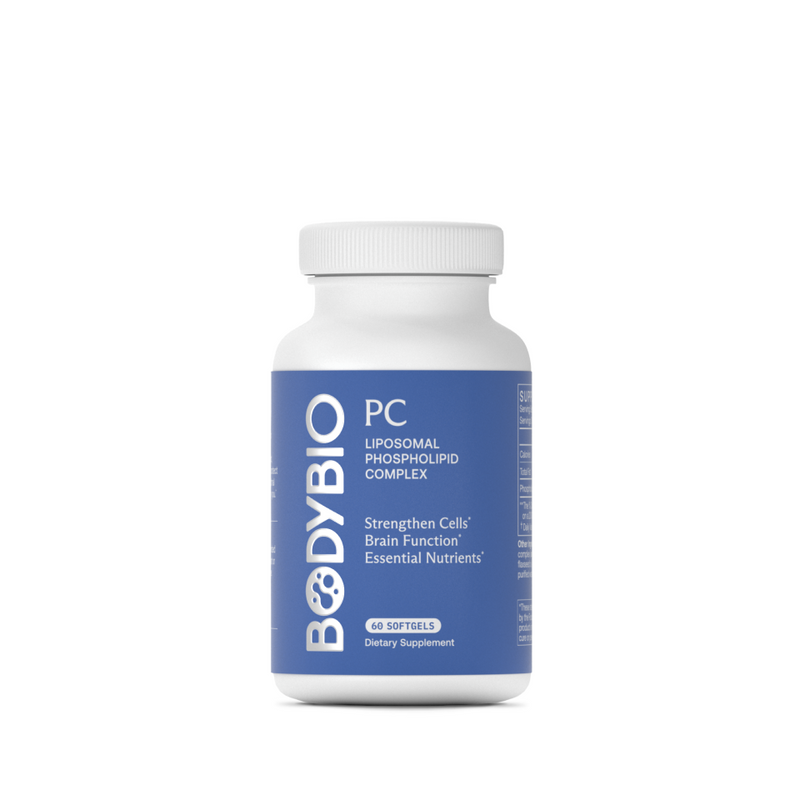What is Health Optimization and How Can You Achieve it in 2022?
So you’ve reached a point in your health and wellness journey where you’ve fixed (at least relatively) whatever you set out to fix–-Lyme disease, autoimmunity, gut health, or perhaps mental health. You went through a lot of pain and suffering and struggle, and you made it through to the other side. Congratulations! But now that you’ve done what you set out to do, and learned so much about your body, mind, and spirit along the way, what’s next?
Or maybe you’re already at a baseline level of health where everything’s going just fine, but you want more–-more energy, brain power, strength, whatever it is. You’ve heard of supplements like nootropics, but you know you don’t just want to take a random supplement and hope for the best. What do you do?
These are questions that many people who’ve had to (or want to) take their health into their own hands eventually end up with, and the answer is: Now that you’ve secured your baseline of health and wellbeing, you can move onto optimizing your health and wellbeing.
In this article, we’ll discuss health optimization and health optimization medicine, why it’s different from preventative medicine, how health optimization ties into cellular health, and how you can optimize your own health in 2022 and beyond.
Key Takeaways:
- Health optimization is all about helping you feel your best and operate at 100% mentally and physically.
- Health optimization medicine focuses on correcting imbalances instead of diagnosing disease.
- Health optimization starts at the cellular level.
- Optimizing your health does not have to be complicated or involve a million supplements, it’s more about finding the right nutrients, practices, and even relationships that exponentially support your wellbeing over time.
What is Health Optimization?
In a nutshell, health optimization is the practice of looking at your health from a perspective of, “how can I make this even better” or “what can I do to feel my best every day and live a long and healthy life,” versus, “how can I fix this thing that’s wrong with me.”
The goal of health optimization medicine and practices is to take you from “yeah, I’m doing pretty good” to “I’m feeling the best I’ve ever felt right now.”
Practitioners in health optimization medicine typically come from a more functional or integrative perspective, but they aren’t specializing in a particular disease or even an area of health, like gut health for example. If anything, health optimization doctors specialize in cellular health, since they are looking for imbalances and deficiencies on a foundational level, such as vitamins and minerals, that when corrected and optimized can bring about full body wellness.
Why We Need Health Optimization Medicine
Health optimization medicine represents a fundamental shift in the way we look at our health, especially in a Western context. The current medical model, in conventional and integrative medicine alike, is primarily to treat disease and fix health issues, or prevent future health issues. But health optimization focuses on sustaining health, rather than treating or preventing illness.
As far as a mindset shift, it’s an important distinction to make: aren’t you much more likely to want to make choices that sustain your health, that make you feel good, instead of ones that prevent you from feeling bad, or prevent some nameless possible condition in the future?
And for those patients still struggling with chronic illness, health optimization medicine really represents a shift in the way we look at our bodies. When you have a chronic disease, it can be easy to get trapped in a mindset of the body becoming the enemy; life becomes about a war against illness, and the disease must be defeated and beaten into submission. But that perspective rarely brings about lasting healing.
Health optimization sees the body as a partner in health, to be nourished, supported, and guided into its best possible state. For chronic illness patients, this may represent a shift in perspective that leads to significant recovery and healing.
Health Optimization Is Not the Same as Preventative Medicine
So health optimization focuses on sustaining health over preventing disease, but what does that mean in practice?
It all comes down to the starting point: preventative medicine still starts from the point of, “How do we prevent cardiovascular disease, Alzheimer’s disease, diabetes, etc.?” Perhaps a patient is following a preventative medicine prescription of a healthy diet and exercise and stress reduction, but they are still looking toward a future where disease looms on the horizon.
Examples of preventative medicine might include:
- Vaccination
- Reducing sugar consumption to prevent diabetes
- Lifting weights to prevent muscle loss.
You can think of health optimization medicine almost as coming before preventative medicine, answering the question of, “How do we help the body run at peak performance (so that disease isn’t even an option)?” It prioritizes the body’s fundamental needs and its optimal nutrient requirements. Dr. Ted Achacoso, a pioneer in health optimization medicine, describes it like this: “The overarching practice is detection and correction of imbalances and not diagnosis and treatment of disease [1].”
Examples of health optimization medicine might include:
- Identifying vitamin and mineral insufficiencies and using diet and supplementation to correct them
- Balancing hormones
- Seeing and treating health from a cellular perspective (rather than an organ or systems perspective).
Health Optimization Focuses on Cellular Health
...And you know we’re all about cellular health! This is another unique perspective health optimization medicine brings to the table; it goes straight to the foundation of the body, the cells. This contrasts the traditional medicine and even functional medicine perspective of treating the body as a series of organs and systems. It’s not that this perspective can’t be useful (thinking about gut health as a system, for example), but going to the foundation of the cells is where health begins.
So then we can ask: what do cells need to be healthy?
- Phospholipids
- Vitamins
- Minerals
- Hormones
- Fatty acids
- Water
- Sunlight, oxygen, etc.
A practitioner operating from a health optimization framework can help you identify and balance these nutrients so that your cells are running on all cylinders.
How Can You Optimize Your Health?
So health optimization is starting to sound pretty good, right? How do you actually put it into practice, maybe to kick off the new year?
Figure Out Your Health Goals
Separate your goals from the paradigm of disease–-instead of asking, “how can I prevent X?” figure out how you want to feel. Do you want more energy? More brain power, focus, and creativity? Do you want to be physically stronger? Optimal fertility? Strong immunity? Figure out what’s important to you for this coming year. Actually write down your ideas and narrow down your options to one or two main goals.
Create a Plan
Ideally, this is where you would work with a doctor or health coach who is familiar with health optimization medicine. They can help you identify nutrients and healthy habits to support based on your goals, as well as discuss how to optimize your environment and even your relationships with your health in mind.
Establish Healthy Habits
Optimizing your health to reach your goals is going to involve some habit changes. There’s plenty of advice out there on how to change your habits and develop new ones, but at the end of the day, it really comes down to how invested you are in reaching your goal.
What your healthy habits look like depends on your goals and your plan to achieve them. But if you’re uncertain about where to begin, here are a few suggestions.
- Set up your environment so that you have no choice but to choose a healthy habit. An obvious example is not allowing junk food in the house and preparing healthy snacks ahead of time so that you have something immediately on hand when you’re hungry. Bonus: Make your home environment somewhere that inspires you and motivates you to make healthy choices. Add some real plants, books, art, whatever the healthiest version of you finds inspirational.
- Talk to an accountability partner, whether that’s a trusted friend, a spouse, or a close family member, especially when you’re tempted to break your good habits and return to destructive ones. But even when you’re not in danger of reaching into the cookie jar, so to speak, it’s a good practice to update your accountability partner on your progress so that they can encourage you.
- Give yourself rewards that motivate you to continue your habit streak. A few ideas: a relaxing bath, a new book/music, date night.
- Keep some kind of record of your progress–-a journal, a voice note, or even video–-to look back on and see the progress you’ve made over time. How are you feeling better as you change your lifestyle? What challenges are you facing and overcoming? There will come a point where you hardly recognize the person from the first entry!
Incorporate Helpful Supplements and Nutrients
Depending on your goals, you’re probably going to need some extra nutritional and cellular support along the way to optimal health. Here are some options to consider, but work with your provider to find what support is right for you.
Phosphatidylcholine (PC): PC is really the best bang for your buck in terms of supporting your cells. As the primary building block of your cell membranes, your cells need PC to maintain their structure, function, and communication capabilities, which underlie the foundation of total body health. BodyBio PC combines phosphatidylcholine with three other key phospholipids to support cell membrane, brain, and mitochondrial health.*
Butyrate: Butyrate, a short-chain fatty acid produced by certain probiotic bacteria in the gut, does so much more than support gut health. In addition to supporting a healthy inflammation response in the gut and supporting a healthy gut lining, [2, 3],* butyrate:
- Supports healthy blood sugar levels [4]*
- Supports healthy immune response [5]*
- Supports a healthy microbiome [6]*
- Supports brain function [7]*
- Supports sleep [8].*
Vitamin D: Vitamin D is essential for healthy immunity, neurotransmitter production, bone health, and many other aspects of your wellbeing [9, 10]. Many functional medicine and integrative doctors consider “normal” levels of this vitamin-hormone to be inadequate for optimal function, especially if you have a chronic illness or autoimmune condition. Because of its involvement in so many key processes in the body, improving your vitamin D status can have significant effects on your physical and mental health.
Optimize Your Health in 2022
Health optimization is all about promoting health and longevity, vs. treating disease and injury. It’s about figuring out what imbalances can be corrected in the body to help you live and feel better every day. It can even extend to shaping your environment and your relationships to help you and your whole community thrive.
Plus, health optimization doesn’t have to mean taking a million supplements and exercising every single day. It’s about figuring out what nutrients and practices will benefit you the most, and then taking steps to integrate them into your life in a sustainable way. Maybe if more of us considered health optimization as a tool for improving our health, we would be more likely to keep our New Year’s resolution to “be healthier this year.” If better health is your goal in 2022, look into working with a health optimization medicine practitioner who can help you reach your goals.




